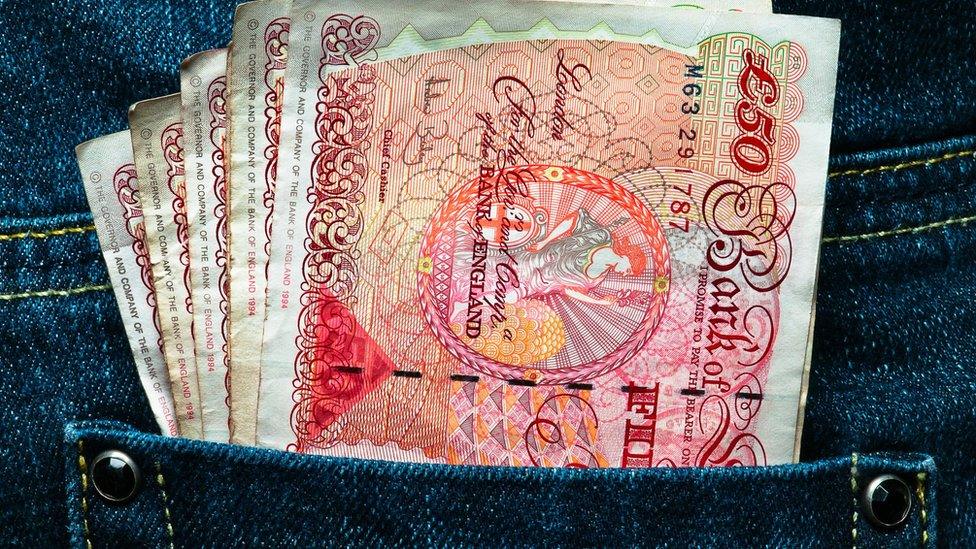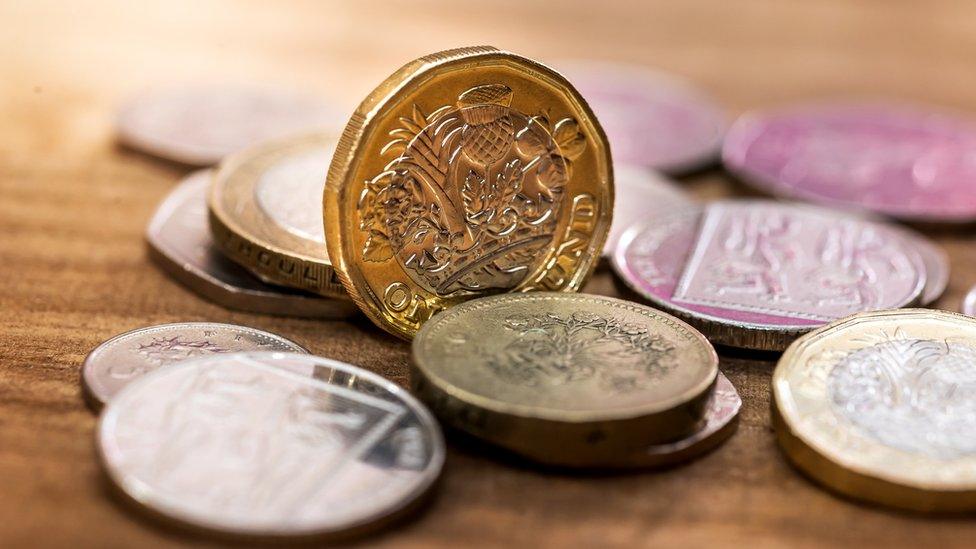Regular savers tempted with cash prizes
- Published
- comments

What do you want in a savings account? Security? Ease of access? Interest rate? Or the chance of a cash prize?
More financial institutions are flocking to prize draws to encourage savers.
On Tuesday, the Nationwide building society launched a scheme offering customers the chance of a £100 reward for stashing cash away every month.
That's been the rationale behind Premium Bonds - which actually pay no interest - for more than six decades.
And last October, the Treasury set up a pilot scheme with a number of credit unions to offer savers the chance to win £5,000.
Helping people get the savings habit
"Millions of people are struggling financially and as a building society, we are looking at how we can help them become financially stable," said Tom Riley, Nationwide's director of savings.
The answer, the mutual reckons, is to gamify the savings habit by handing out prizes. Its new Start to Save account pays 1%, but will also enter anyone who adds at least £50 to their account for three consecutive months entry into a prize draw.
"Our experience tells us that rates are not the primary reason why young people and families aren't saving," said Mr Riley. "That is why Start to Save is aimed at those struggling to build a savings buffer of any sort."
The credit union PrizeSaver accounts have a similar aim. Launched in October through 15 credit unions by the Treasury, they allow savers to put away as little as £1 to be in with a chance of winning £5,000.
"Saving for the future is something we all try to do, but we know it can sometimes be challenging," said MP John Glen, the Economic Secretary to the Treasury. "That's why we teamed up with credit unions across the country to launch this account."
What are the chances?

How likely is it that you could win a cash prize through your savings? Those who've held Premium Bonds for years with no wins may not be too positive about their prospects.
Especially as NS&I rates are being cut from 1 May, which means the chance of a £1 Bond winning a prize will fall from 24,500-1 to 26,000-1.
At credit unions, some 3,500 PrizeSaver accounts have been opened since the launch last October, which gives each account-holder a 3,500-1 chance to win the £5,000 prize, although the odds will lengthen as more accounts open.
At the Nationwide, the prize draw amount is 1% of the increased balance over three months. So if 50,000 people put in £150 between April and June, the total prize fund for the July draw would be £75,000.
That would leave 50,000 people fighting over 750 prizes - a 67-1 chance. If the 50,000 deposit twice as much, the chances of winning fall to 34-1.
Cash prize or higher rates? It's your choice
"I can't see there being a stampede to sign up to the Nationwide offer," said rates analyst Andrew Hagger of Moneycomms.co.uk.
"Being offered 1% interest and a slim chance to win an extra £100 in a prize draw once every three months in return for you saving every month is not that attractive."
Savings guru James Blower reckons the account has a chance of being a success "given Nationwide's strong member base and good reputation". But he too has reservations: "I think the 1% rate and £100 prizes are likely to limit take-up."
He pointed out that the 1% rate is beaten by a branch-based Kent Reliance account paying 3% and by Coventry Building Society, which offers 2.5% to customers online.
Mr Hagger is more supportive of the credit unions' scheme. "Getting more vulnerable people into the savings habit by dangling a carrot will hopefully see some of them no longer having to rely on payday loan providers when they need to borrow, as the credit union will be their new alternative and able to help at affordable rates," he said.
Meanwhile, for more well-heeled savers with £5,000 in their account, Halifax has offered a savings prize draw since September 2011. Since then it's paid out £63,425,700 to 123,728 winners.
And if you have £10,000 in your nest egg, you could consider Family Building Society's Windfall Bond, which offers a monthly prize of £50,000.
But underpinning all of these is the importance of saving regularly. "At the very least, saving regularly gives people a financial cushion in case of unexpected bills and stops them having to rely on expensive credit card and bank overdraft rates," pointed out Mr Hagger.
- Published9 January 2020

- Published12 April 2019

- Published5 October 2018
